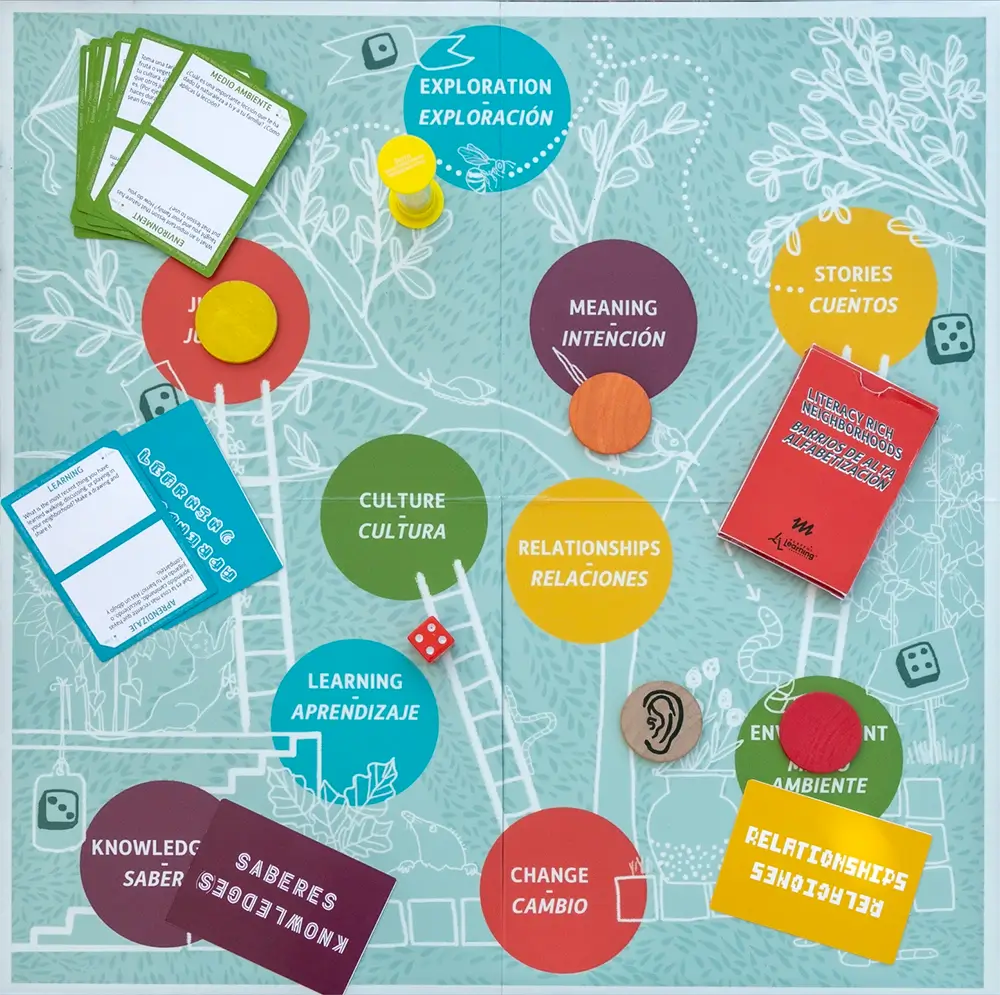Every neighborhood has a story to tell
The Playful Learning Landscapes community engagement process is designed to uncover and elevate the elements that make each community unique, including its history, culture, values, and hopes for the future. We partner with community-based organizations to design and implement an engagement approach that fits the needs of the project and the people involved. This work is guided by our Community Engagement & Co-Design Roadmap, an iterative framework that centers the community at every stage of the process. The roadmap outlines four key phases: Engaging the Community, Collaborative Co-Design, Prototyping and Refining Ideas, and Implementation, Evaluation, and Long-Term Maintenance. Throughout each phase, we use Playful Learning games and activities as tools to both benefit participants and elicit rich, meaningful feedback. Together, these strategies help ensure that Playful Learning installations are engaging, inclusive, and deeply reflective of the communities they serve.
To learn more about this approach and use the tools from the Roadmap to create your own community engagement timeline, you can download the Community Engagement & Co-Design Roadmap on our Resources page!

“Our community was looking at how to help children build their math, literacy and science, then how do we tie these pieces together to help them with their education? Urban Thinkscape holds the promise of giving them a fair shake. This project was introduced in the Belmont Community and everyone’s hands went up saying, ‘I want it! I want it!”
President / CEO, Belmont Alliance Civic Association PA
What can Playful Learning Landscapes bring to your community?
The goal of Playful Learning Landscapes is to infuse our neighborhoods with joyful learning experiences that encourage cross-generational interaction and enhance children’s physical, cognitive, and social development. Learn more about the importance of our community-led approach.

Playful Learning Landscapes Board Game
Using the principles of playful learning to engage your community
The Playful Learning Landscapes Board Game challenges players to think critically and creatively about spaces where they spend their time. Players are presented with prompts like “Imaging you are the DJ at your neighborhood block party. What songs will you play and why?” that are designed to gather information about the culture and values of the community. The game relies on storytelling, and in listening to the stories of others. Community members who have played say that they were surprised by others’ responses and excited to share their own experiences. Using gameplay for co-design is a refreshing approach that sparks joy and investment in communities.
The Playful Learning Landscapes Board Game was developed in partnership with Mural Arts Philadelphia.